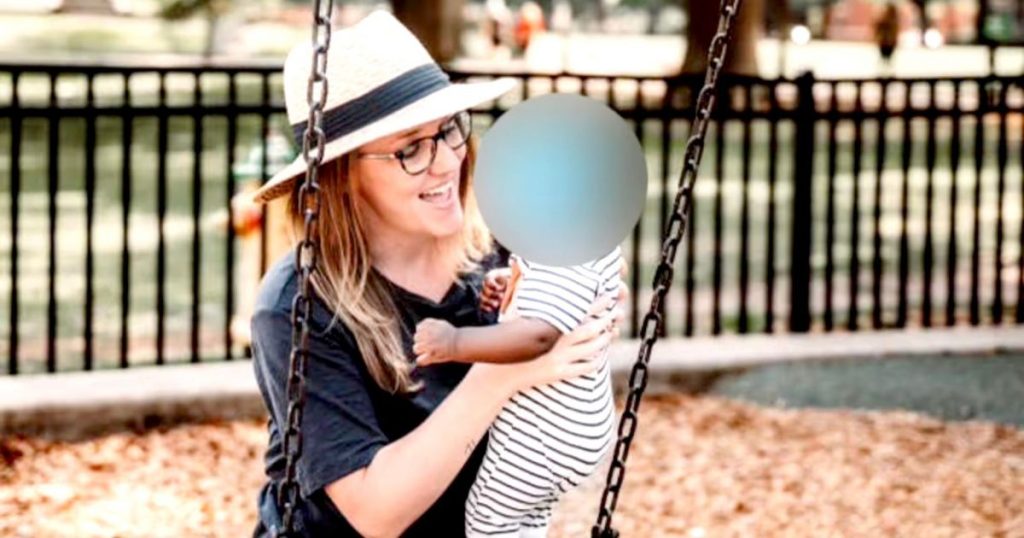Krystena Murray, a 38-year-old woman from Savannah, Georgia, embarked on a journey to fulfill her dream of motherhood through in vitro fertilization (IVF). Choosing to utilize donor sperm, she underwent the necessary procedures at Coastal Fertility Specialists, a clinic with locations in Georgia and South Carolina. After a successful second embryo implantation attempt, Ms. Murray joyously anticipated the arrival of her child. Her pregnancy progressed without incident, and in December 2023, she gave birth to a healthy baby boy. However, the elation of motherhood was immediately replaced by a profound sense of confusion and distress. The infant, a boy, was Black, while both Ms. Murray and the sperm donor were white, immediately signaling a critical error in the IVF process.
Ms. Murray’s world was shattered upon contacting the fertility clinic. The devastating truth revealed a catastrophic mistake: the clinic had implanted the wrong embryo, belonging to another couple, into her uterus. Ms. Murray had unknowingly carried and given birth to a child who was not biologically hers. The news was a crushing blow, forcing her to confront the unimaginable reality of having to relinquish the child she had nurtured and loved for months. The biological parents of the baby were notified of the error and, understandably, asserted their parental rights, demanding custody of their son.
Faced with the daunting prospect of a protracted legal battle and the immense emotional toll it would take, Ms. Murray made the agonizing decision to voluntarily surrender the five-month-old baby to his biological parents. This heart-wrenching experience left her feeling profoundly violated and emotionally scarred. She described the ordeal as emotionally and physically devastating, having formed an undeniable bond with the child she believed to be her own. Handing over the baby in court was an excruciating experience, transforming her from a joyous mother to a grieving woman with an empty stroller, separated from the child she had nurtured and loved.
Ms. Murray’s subsequent lawsuit against Coastal Fertility Specialists alleges that the clinic’s egregious error forced her into the unwanted role of a surrogate mother. The lawsuit characterizes the clinic’s actions as “extreme and outrageous,” highlighting the profound emotional and physical distress she endured. Ms. Murray’s statement emphasizes the depth of her connection with the child, stating that she saw no difference between raising him and raising her own biological child. The experience of having him taken from her, after months of bonding and love, left her feeling violated and deeply wounded. Her legal action seeks redress for the profound trauma she experienced due to the clinic’s negligence.
Coastal Fertility Specialists, in response to the incident, issued a statement acknowledging the “unprecedented error” and offering an apology to all parties involved. The clinic characterized the embryo transfer mix-up as an isolated event, assuring the public that they are committed to rectifying the situation and making amends to those affected. While the clinic’s statement acknowledges the gravity of the error, it does little to alleviate the profound emotional pain experienced by Ms. Murray and the disruption caused to the lives of the biological parents. The clinic’s pledge to “make things right” faces the daunting challenge of repairing the irreparable damage caused by their negligence.
The case highlights the critical importance of stringent protocols and meticulous attention to detail in fertility clinics. Ms. Murray’s experience underscores the devastating consequences of errors in such sensitive procedures. Her story serves as a stark reminder of the emotional vulnerability of individuals undergoing fertility treatments and the profound impact of mistakes that can irrevocably alter lives. What started as a hopeful journey to motherhood transformed into a traumatic experience of loss and legal battles, raising serious questions about the safeguards in place at fertility clinics and the need for greater accountability. This case also brings into sharp focus the complex ethical and legal implications of reproductive technologies and the devastating consequences when these technologies fail.













